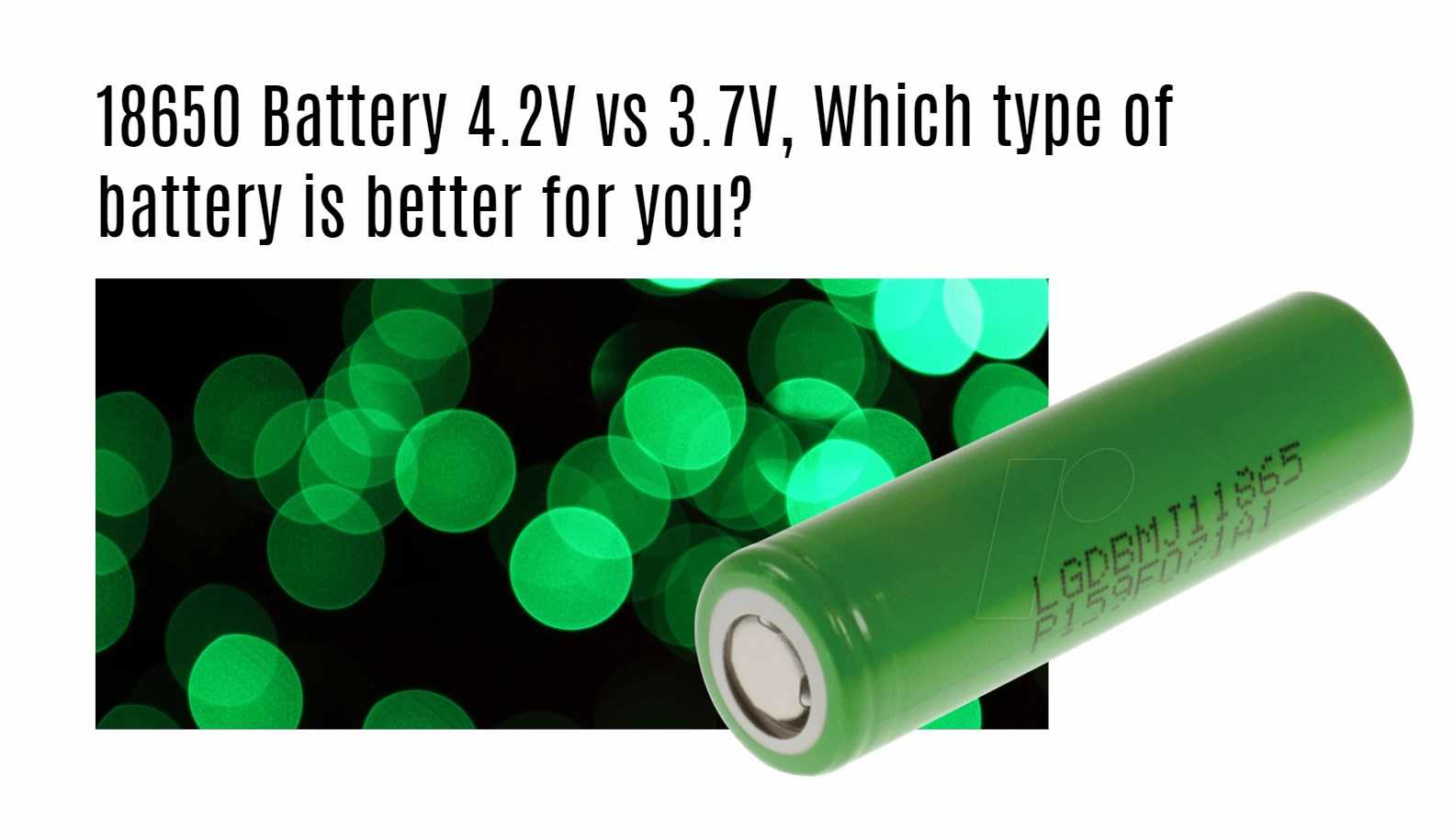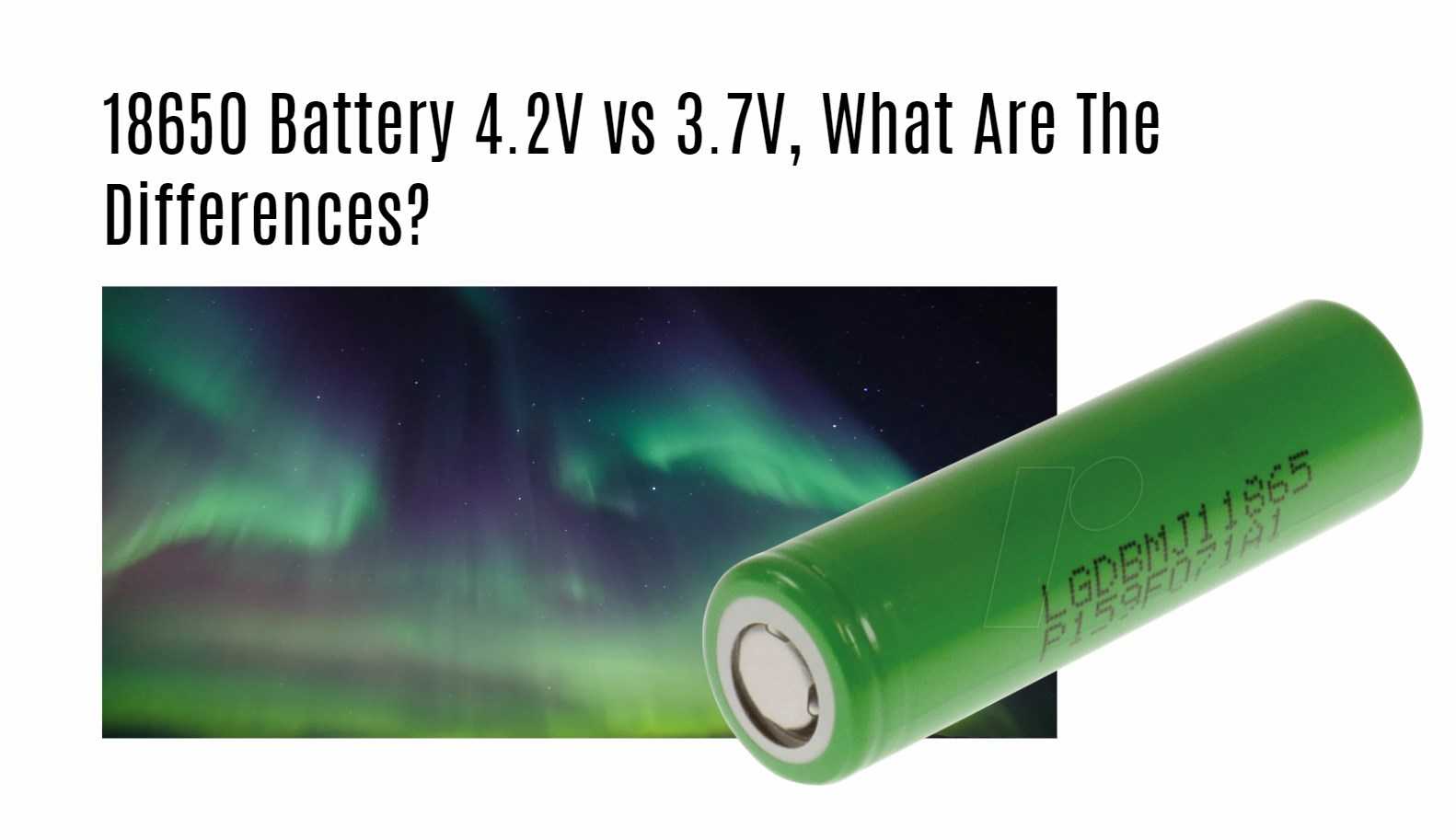- Voltage Difference: The main distinction lies in the voltage levels. The 4.2V battery has a higher voltage, providing more power output, while the 3.7V battery has a lower voltage, offering a longer useful life.
- Power Output vs. Lifespan: The 4.2V battery delivers higher power output but has a shorter lifespan, while the 3.7V battery provides a longer useful life with less power output capability.
- Personal Preference and Usage Requirements: The choice between the two depends on your specific needs and preferences. Consider the trade-off between power output and battery lifespan when selecting the appropriate 18650 battery for your device.
What is an 18650 Battery?
Discover the 18650 battery, a popular rechargeable lithium-ion power source for various high-performance devices. Here’s why they stand out:
- Compact Design: Named after its size, 18650 batteries are 18mm in diameter and 65mm in length, making them ideal for devices like flashlights, laptops, vape pens, and electric vehicles.
- Cylindrical Advantage: The cylindrical shape allows easy stacking for increased voltage or capacity. They come with a flat top or button top terminal configuration, depending on the manufacturer.
- Affordable and Eco-Friendly: Offering excellent performance at an affordable price, 18650 batteries can be recharged hundreds of times, making them environmentally friendly compared to disposable alkaline batteries.
In summary, 18650 batteries are a crucial component for many modern devices, providing reliable power with longevity and eco-conscious benefits.
18650 Battery 4.2V vs 3.7V
When it comes to 18650 batteries, there are two common voltage ratings: 4.2V and 3.7V. The key difference lies in the power they provide to your device.
- Higher Voltage (4.2V): Offers longer battery life, meaning less frequent charging. However, these batteries can be more expensive and may not be compatible with all devices.
- Lower Voltage (3.7V): Can be cheaper and may work better for devices that require less power.
Choosing between them depends on your device’s needs and your specific requirements. Research before purchasing to make an informed decision about the best 18650 battery for you.
What are the differences between the two types of batteries?
Discover the key differences between 18650 batteries at 4.2V and 3.7V, focusing on their operating voltage and impact on performance:
- Higher Voltage (4.2V): Ideal for high-drain tasks like vaping or flashlights, delivering more power in short bursts. However, it comes with a shorter lifespan and requires more frequent charging.
- Lower Voltage (3.7V): Provides longer overall runtime with less stress on components. It’s a good choice for those prioritizing longevity and efficiency.
- Capacity Matters: Consider the milliampere-hours (mAh) rating, influencing how long a charge lasts. Higher mAh offers longer runtimes but may require longer recharge times.
Remember, both types are usually interchangeable, but matching voltages is crucial. Choose based on your specific needs, whether emphasizing raw power output or sustained efficiency over time.
Which type of battery is better for you?
Unlock the right 18650 battery for your needs by considering these factors:
- Voltage Compatibility: Match your device’s voltage requirements. If it operates on 4.2V, choose an 18650 battery with a fully charged voltage of 4.2V.
- Capacity Matters: Evaluate battery capacity in milliampere-hours (mAh) to understand how long it lasts before needing a recharge.
- Additional Features: Consider special features like overcharge protection or high discharge rates based on your specific use case.
Ultimately, the choice between 4.2V and 3.7V depends on your preferences. While higher voltage provides more initial power, it may lead to faster wear and tear. Conversely, lower voltage may offer slightly less power initially but could extend the lifespan of both the battery and device components, particularly for powerful devices like laptops or smartphones.

How to choose the right 18650 battery for your needs
Choose the perfect 18650 battery with these key considerations:
- Device Compatibility: Tailor your choice to the device’s needs, considering voltage and capacity requirements.
- Discharge Rate: Match the battery’s discharge rate to your device’s energy demands. High-powered devices need batteries with high discharge rates.
- Brand and Quality: Pay attention to reputable brands for quality assurance. While cheaper options exist, they may compromise overall quality and risk damage to your device.
- Thorough Research: Explore different brands and models, read user reviews, and gather insights before making a purchase.
- Proper Maintenance: Ensure longevity and safety by following manufacturer instructions for charging and discharging cycles. Store batteries correctly, avoiding extreme temperatures or moisture, and never mix old or damaged batteries with new ones.
By keeping these factors in mind, you can select an 18650 battery that ensures optimal performance for both your device and its power source.




